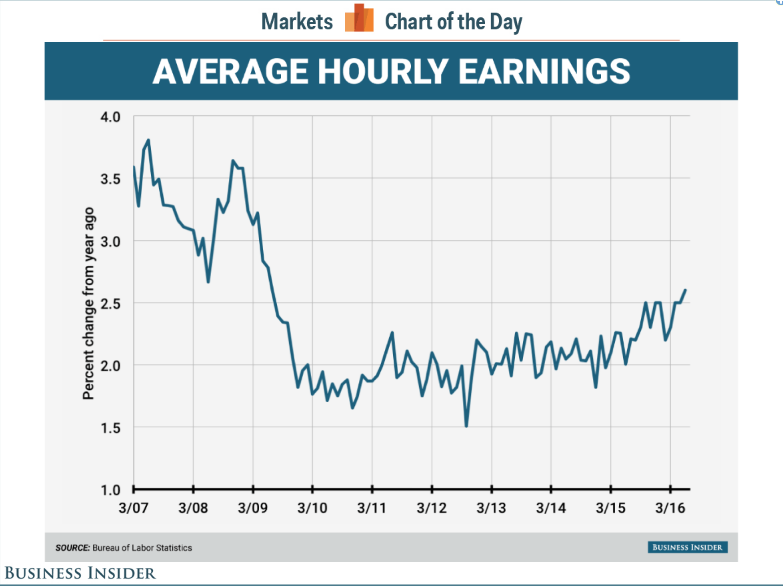I’ve been talking a lot lately about how women are getting paid less. Much of it is legitimate, some of it is not. Either way, it’s about to get worse!
Take a look at this chart from Business Insider, wages are growing at a fast rate:
What does this mean? You are about to start paying your employees and new hires more. This is bad news for women, since historically two things happen that screw them over in times like this:
- They’re less likely to leave their current organization.
- They’re less likely to negotiate higher salaries when starting a new job.
How does wage growth hurt women in these two cases?
First, if you stay at an organization, and don’t ask for more money, most organizations aren’t just going to give you money. At the same time, the organization is hiring new people, in the same positions, for more money! Now, you would hope that organizations would do the right thing, and make everyone whole, but we know this doesn’t happen as often as we would like.
Second, studies show women are less likely to negotiate for higher salaries when they are starting a new job. This becomes an issue as some organizations will pay whatever it takes in hard to find talent environments, meaning those who are tough negotiators are going to come in at higher rates. This usually means men will make more in the same or similar positions.
As wages grow fast, and talent is hard to find, many times in large organizations these inequalities will get missed. This is part of why women get paid less. Things happen fast, a hiring manager has a shot at a great male developer and they pay more than others in their group. They know it’s more, but they’re desperate. They think they’ll take care of it when things slow down, but we know, things never slow down!
HR pros need to be very careful to watch incoming salaries and salary changes during these times of high wage growth. The market compensation is changing so fast, you might have to look at this quarterly, or even monthly, depending the industry, location, or position.
You already have a problem with paying females less, don’t allow fast moving markets to make your problem worse!

